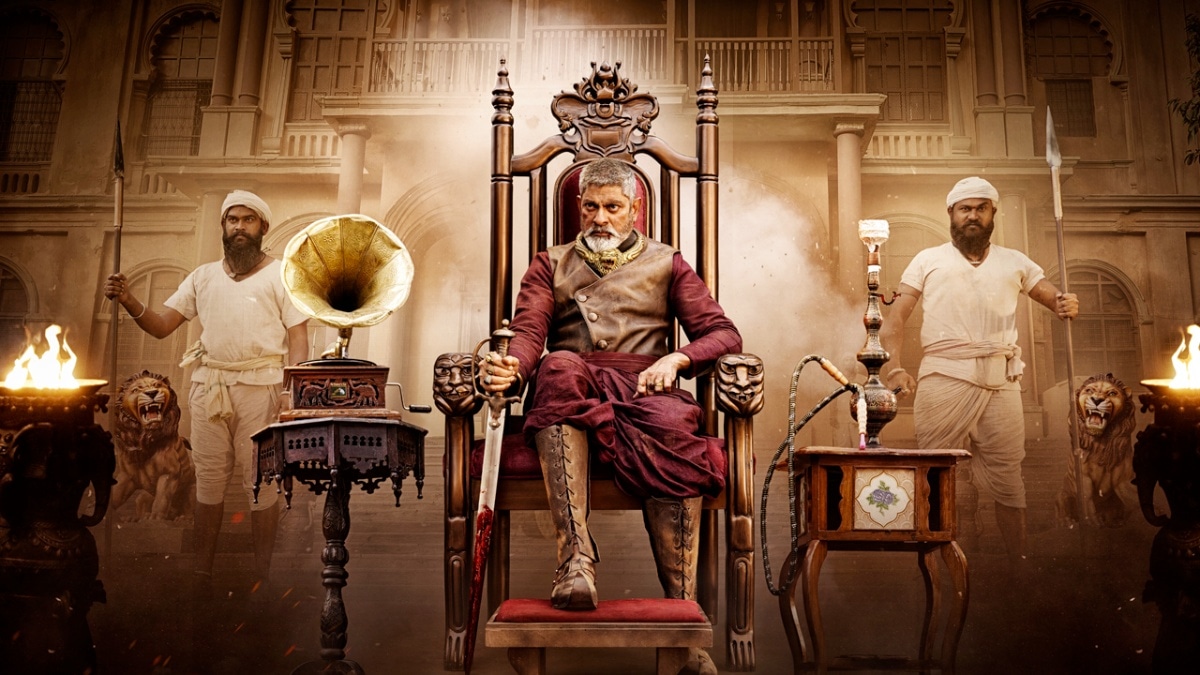Rudrangi review: Jagapathi Babu, Mamta Mohandas impress in a gripping period drama
Directed by Ajay Samrat, the film is set amidst a Telangana village in the late 1940s
Jul 07, 2023

Rudrangi
Rudrangi
Story:
Mallesh’s life turns topsy-turvy when a crooked zamindar kills his grandfather and separates him from his cousin Rudrangi. He soon wins the trust of a landlord Bhimrao and leads a dignified existence. Bhimrao, who has multiple wives - Mirabai and Jwalabai - lusts after another village woman. What connects Mallesh to this woman and how far will he go to fight for her honour?
Review:
After Rajanna, Rudrangi is a semi-fictional attempt to trace the plight of a Telangana village that’s yet to taste freedom in an independent India. The tale unfolds through the lens of an eccentric landlord, offering a glimpse of his life as a family-man and as a ruler who treats his subjects like slaves. The story tries to understand the psyche of the notorious ruler as much as his victims.
Alike most historic tales, the conflict arises due to the injustice meted out to a woman. With his eye for high-stakes drama, writer-turned-director Ajay Samrat ensures a captivating film centring on an uprising between a ruler and his subjects. Striking an edgy balance between fact and fiction, the storyteller seamlessly transports a viewer to the late 1940s.
Rudrangi is a fine example to show that huge budgets needn’t be the sole criterion to make compelling period dramas. The writing finesse aside, the director chooses his lead actors well, uses limited sets, and surreal locations in Telangana and exhibits a good taste for art, costumes, music and cinematography. Except for the distracting summer-cut avatar of Jagapathi Babu, there aren’t major complaints with the aesthetics.
The repeated attempts to showcase the voyeuristic side to the protagonist leaves you uneasy initially. While the story isn’t exactly novel, the raw, intense packaging is one of its strengths. The commercial ingredients - the dark humour, the satirical dialogues and liberal dose of romance - are in the right mix to keep the proceedings lively. The focused screenplay is another advantage.
If the first-hour deals with the romantic escapades of the protagonist Bhimrao and the backstory of his aide Mallesh, the drama thickens in the post-intermission segments. The villagers’ battle between self-respect and basic necessities of life is highlighted with earnestness, paving the way for an emotional, bloodbath of a finale.
Learning a thing or two from his masters - SS Rajamouli and Vijayendra Prasad - Ajay Samrat creates a strong emotional foundation for the film and sets up the cinematic highs, confrontations with taste. Thanks to his prior experience as a writer, he successfully creates a bunch of strong, equally flawed characters with a certain aura and personality.
Right from the gait to their body language and the authority in the presence, the distinction among the characters is established well. It’s interesting how Bhimrao and Jwalabai share a common love for music - the throwback to Western classical music pieces, references from Mughal E Azam, Shree 420 (although factually incorrect) add flavour to the narrative.
The film captures a slice of history without compromising on commercial appeal. Jagapathi Babu is tailormade to play Bhimrao - the director gives him complete license to go wild in depicting the animalistic behaviour of the ruler. When he doesn’t go overboard, he does justice in bringing the essence of the colourful yet notorious character to the fore.
Mamta Mohandas couldn’t have asked for a better role in her return to Telugu cinema. Though the slang is slightly problematic, to begin with, her superb screen presence, expressive face and agile body language are a delight to watch. Vimala Raman, as a partner who silently bears the brunt of her husband’s actions, is impressive while she lasts.
The surprise package is of course - Ashish Gandhi as the ‘macho’ man who’ll go to any length to guard his self-respect. Ganavi Laxman is a promising find, essaying a key role and holding her own in crucial junctures with poise. Kalakeya Prabhakar passes muster while RS Nanda packs a punch in a role packed with terrific one-liners. While Nawfal Raja’s songs are lively and vibrant, the music score - demanding you to react as per the creator’s instructions - leaves you overwhelmed. The power-packed dialogues and the action choreography make an impression.
Verdict:
While Rudrangi has its share of eccentricities, the director Ajay Samrat leaves a lasting impression with his eye for drama, nuanced understanding of human emotions and commercial appeal. With powerful performances by Jagapathi Babu, Mamta Mohandas and Ashish Gandhi, this is a gripping period drama.
Share